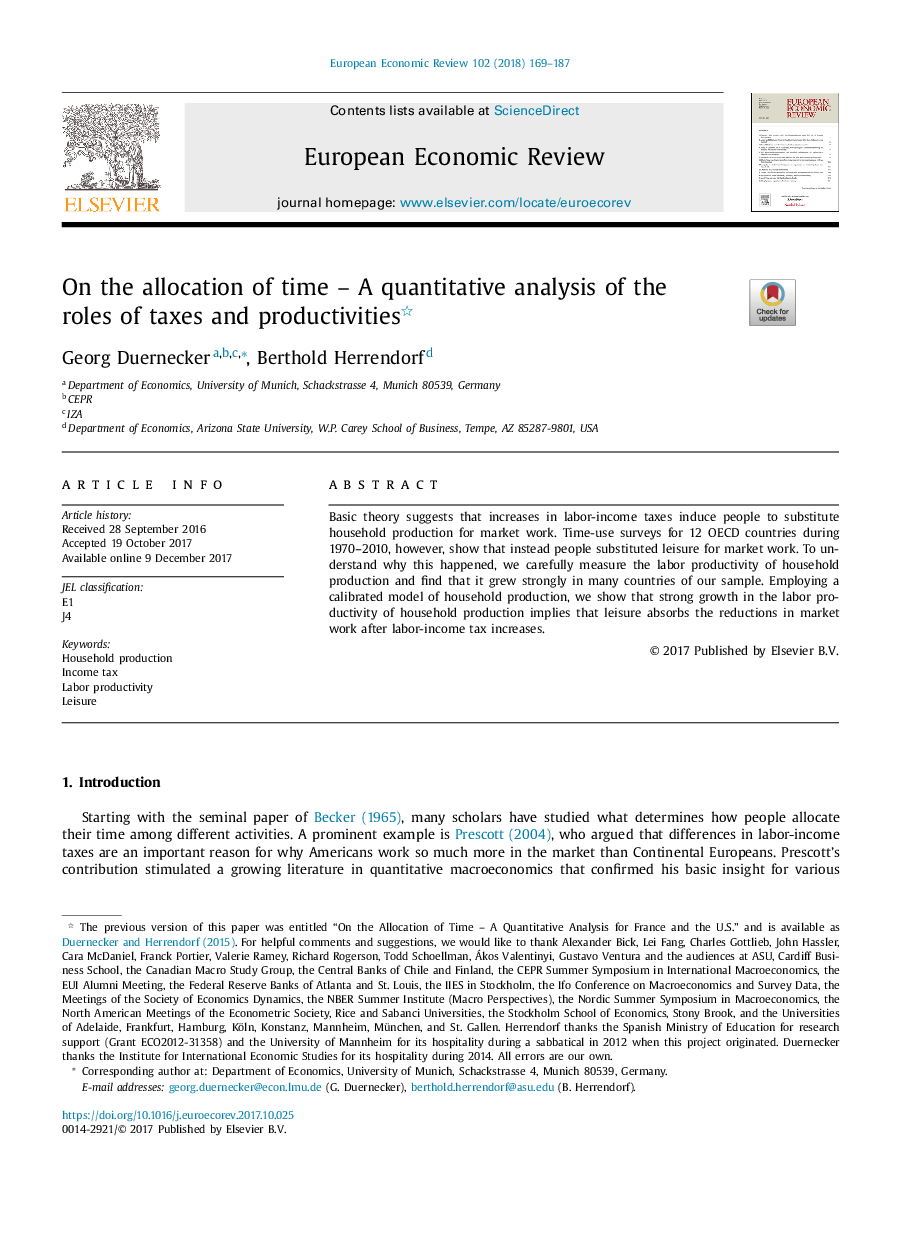| Article ID | Journal | Published Year | Pages | File Type |
|---|---|---|---|---|
| 7351533 | European Economic Review | 2018 | 19 Pages |
Abstract
Basic theory suggests that increases in labor-income taxes induce people to substitute household production for market work. Time-use surveys for 12 OECD countries during 1970-2010, however, show that instead people substituted leisure for market work. To understand why this happened, we carefully measure the labor productivity of household production and find that it grew strongly in many countries of our sample. Employing a calibrated model of household production, we show that strong growth in the labor productivity of household production implies that leisure absorbs the reductions in market work after labor-income tax increases.
Related Topics
Social Sciences and Humanities
Economics, Econometrics and Finance
Economics and Econometrics
Authors
Georg Duernecker, Berthold Herrendorf,
